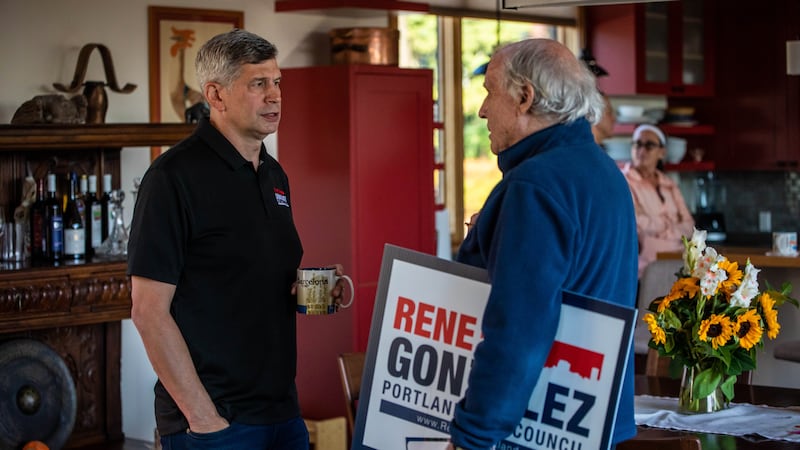The city of Portland’s Small Donor Elections program, which matches small contributions to candidates with taxpayer dollars by up to a 9-to-1 ratio, is approaching a critical budget season.
In anticipation of the program’s budget being spread among the many candidates running for the 14 seats up for grabs this fall, the Portland Elections Commission—which sets the program’s match limits—lowered the city’s matches for both the City Council and mayoral races.
The Elections Commission voted to limit mayoral race matches to $100,000 and to reduce the City Council match limit by 60%, lowering it to between $40,000 and $120,000, depending on how many small donors contribute to a candidate. The limits will not lower the city’s match rates, which can be up to 9 to 1, depending on the size of the contribution. (The smaller the contribution, the more the city multiplies it with taxpayer dollars.) The changes only limit the total amount the city can give any candidate in matching funds.
The mayoral cap plummeted most steeply. In prior years, the match limit was $750,000. Now, it’s $100,000.
But those limits could change this budget season: The Portland City Council has the authority to boost the program’s budget in the next fiscal year, if it chooses. (The fiscal year begins July 1.) And if the program’s budget is increased, the Elections Commission will revisit the match limits and raise them.
But there’s a perverse incentive at play. Three city commissioners are running for mayor and one is running for reelection. The program’s budget woes and pleas for $5.7 million more this year presented a quandary: Those four members will be voting on the budget of the program that feeds their campaigns taxpayer dollars.
Earlier this year, the City Attorney’s Office informally advised City Council members running for office to not bring forth proposed increases to the program’s budget, warning it could potentially be, or appear to be, a conflict of interest.
But in late January, the Oregon Government Ethics Commission offered a different opinion: In an email to Portland City Attorney Robert Taylor on Jan. 26, OGEC executive director Susan Myers wrote that the commissioners could vote on the program’s budget with no conflict.
“The reason that the city councilors would not be met with conflicts of interest is because the financial impact of the decision being made is not to them personally but to the campaigns,” Myers wrote. “You asked if it would matter whether the position the candidate was running for was a paid position. It would not matter, again because the decision being made is not whether the public official/candidate would or would not get that paid position. Rather, the decision being made is whether the campaign (separate legal entity) will or will not get the matching funds.”
City Commissioner Rene Gonzalez, one of the three members of the City Council who’s running for mayor, says he will consider bringing forward a proposal to increase the program’s budget, but is “not sure yet.”
“It is a difficult budget year, and I will not support defunding public safety to pay for more lawn signs,” Gonzalez said. “At the same, I recognize that overzealous advocates have dramatically reduced candidates’ abilities to raise money on their own in city and county races.”
Mayor Ted Wheeler will propose his annual budget in early May. Once he does so, members of the City Council can bring forth amendments to the budget, including increasing the budget of the Small Donor Elections program.
